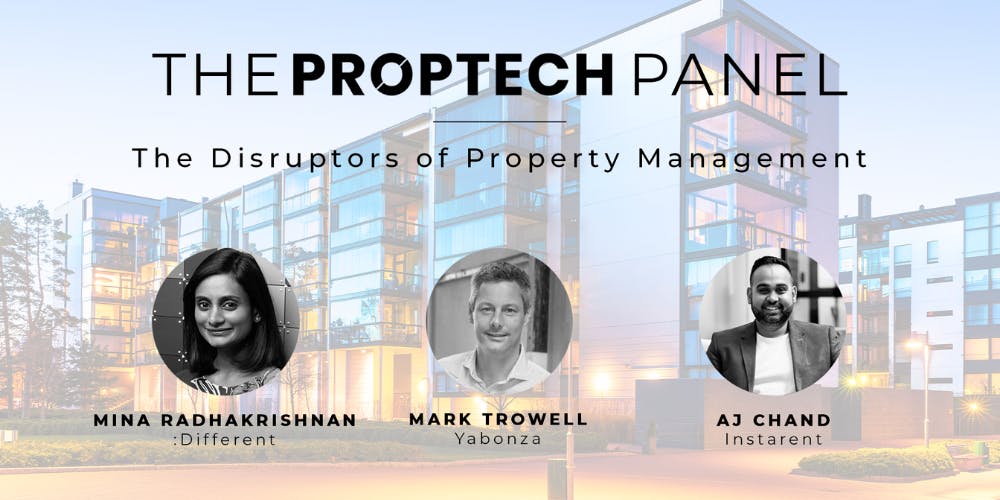
We’re delighted to welcome back Kylie Davis to moderate the second panel of a series of events by the PropTech Association Australia, sponsored by Stone & Chalk.
Joining the panel were Mark Trowell, CEO and Co-Founder of Yabonza, Mina Radhakrishnan, Co-Founder of :Different, and Aj Chand, Founder of Instarent.
They shared insights into the future of property management, issues with the traditional business model, and how innovations in the industry are changing the game for landlords and tenants in Australia.
The state of property management
Property management is a $5.5 billion dollar industry in Australia that is well overdue for a makeover.
Long gone are the days where investment property owners are willing to pay expensive fees, or where property managers are expected to undertake every responsibility for the properties in their portfolio.
Similarly, tenants are no longer going to have the patience to wait weeks for maintenance repairs to go ahead.
The industry is ready now more than ever for innovations that prioritise the landlord-tenant experience.
Challenges facing the industry
The main issues with traditional property management that were highlighted are:
- Limited transparency and poor communication between landlords, tenants and property managers
- Poor value for money
- Lack of efficiency and convenience
One of the key challenges to the traditional business model is increased competition, explains Mark.
With PropTechs creating property management platforms enhancing and simplifying communication between landlords and tenants, the overall process is becoming much more efficient than traditional means.
Control over maintenance tasks, finances, and inspections are at the consumer’s fingertips.
How PropTech can improve the experience
PropTechs are prioritising transparency between landlords and tenants as another way of improving the user experience.
According to Mina, property management is essentially ‘about tracking tasks’, which is why these platforms are enabling features to track the status of tasks such as maintenance repairs or tenant applications.
Data is valuable in enhancing this transparency because of its ability to provide an in-depth understanding of a property.
Following her experience working at Uber and Google, Mina believes that ‘bringing technology and the physical world together can create a better experience for people’.
For example, PropTechs can collect data about electricians in a specific area and customise the search results for different users. This is a deeply personalised process that no traditional property manager or software is capable of.
How PropTech reduces costs
PropTechs are also paving the way for landlords to maximise their rental yield through cost-reduction mechanisms.
Most landlords, or ‘investors’ as Mark labels them, tend to have at least more than two properties, which can be expensive in terms of traditional management fees.
On the other hand, PropTechs are able to charge landlords lower listing fees for the convenience of only having to deal with one property manager.
A changing industry
Aj pointed out the less-intrusive nature of digitising the property management industry.
As someone who has experienced both being a tenant and a landlord, Aj can understand the frustration of being chased down by property managers at their convenience.
This leads onto the point that for many industries, Covid-19 has forced businesses to digitise the way we experience human-to-human interactions. In fact, Covid-19 has helped Aj’s platform, Instarent, grow quite rapidly.
He explained that players in the industry became grounded during lockdowns, yet still needed a way to find, list, manage and rent property. His platform, along with others, acted as the contactless, trusted intermediary between landlord and tenant.
The panelists agree that a seamless user experience through technology will enable the property management industry to flourish in years to come.
As for the traditional property managers, Mark suggests that they ‘view disruptors as an opportunity’ to reinvent their expertise and contribute to the industry accordingly.
Find out more
You can watch the full discussion on our YouTube channel.
Stay up-to-date by joining the Stone & Chalk mailing list.